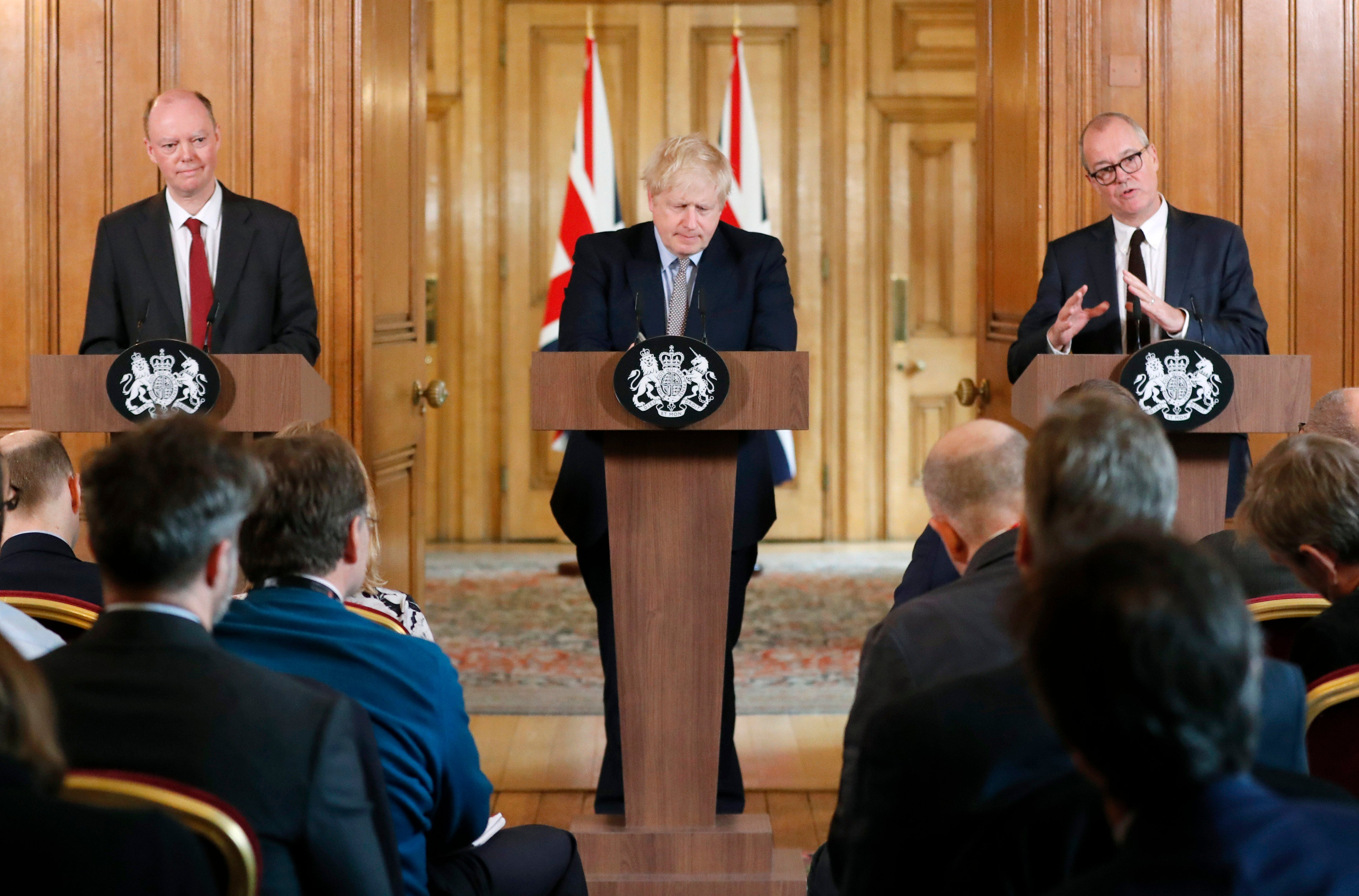UK took action too late against COVID-19 during first wave of pandemic, top medical officer says
The U.K.'s chief medical adviser says Britain’s government was too late in taking action against the coronavirus during the first wave of the pandemic in 2020

Your support helps us to tell the story
From reproductive rights to climate change to Big Tech, The Independent is on the ground when the story is developing. Whether it's investigating the financials of Elon Musk's pro-Trump PAC or producing our latest documentary, 'The A Word', which shines a light on the American women fighting for reproductive rights, we know how important it is to parse out the facts from the messaging.
At such a critical moment in US history, we need reporters on the ground. Your donation allows us to keep sending journalists to speak to both sides of the story.
The Independent is trusted by Americans across the entire political spectrum. And unlike many other quality news outlets, we choose not to lock Americans out of our reporting and analysis with paywalls. We believe quality journalism should be available to everyone, paid for by those who can afford it.
Your support makes all the difference.Britain's government was too late in taking action against the coronavirus during the first wave of the pandemic in 2020, the U.K.'s chief medical adviser said Tuesday.
Responding to questions about the U.K.'s actions in handling the early days of the COVID-19 pandemic, Chris Whitty told a public inquiry he felt he was more wary than others about the negative impacts of “shielding,” or isolation policies, school closures and lockdowns.
Whitty said he was concerned in particular about the longer-term impact such policies would have on the poorest people and those living alone, and described the difficulties in balancing the risks of introducing decisive measures “too early” or “too late.”
But he rejected suggestions by the inquiry’s lawyer, Huge Keith, that he had warned the government against “overreacting." Rather, he said he made it clear to policymakers that “without action, very serious things would occur."
“With the benefit of hindsight, we went a bit too late on the first wave," Whitty conceded.
He said the U.K. should perhaps have “cottoned on" to a national lockdown being a possibility in the early days of the pandemic, but added that “there were no good options.”
“All the options were very bad, some are a bit worse, and some were very, very bad,” Whitty said.
Whitty, who remains the U.K.'s top medical official, was the latest to give testimony to the independent COVID-19 inquiry. The probe was ordered by former Prime Minister Boris Johnson in 2021 to scrutinize and learn lessons from the U.K.'s response to the pandemic.
Whitty became a household name during the pandemic, when he often appeared alongside Johnson and senior officials at daily televised government briefings on COVID-19.
The U.K. has one of the highest COVID-19 death tolls in Europe, with the virus recorded as a cause of death for more than 232,000 people. Many bereaved families say they were failed by politicians and policymakers whose actions contributed to unnecessary deaths and suffering during the pandemic.
The lengthy inquiry's current phase focused on pandemic decision-making, and Johnson and current Prime Minister Rishi Sunak, who was Treasury chief during the pandemic, are both expected to give evidence at a later date.
The U.K. imposed a national lockdown, with a mandatory stay-at-home order, in March 2020, shortly after France, Spain and Italy imposed similar measures.